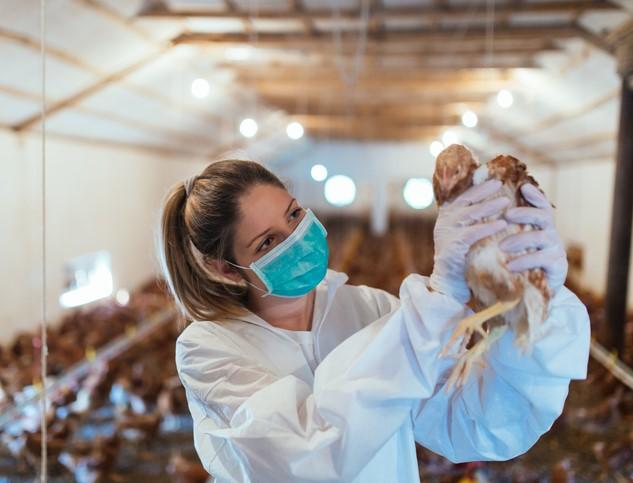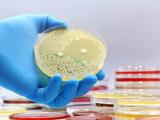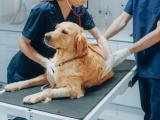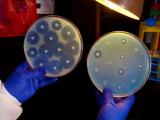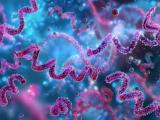In two positive antimicrobial stewardship steps in Europe, members of the European Parliament (MEPs) today adopted a law to limit the use of antibiotics in food-producing animals, and a UK report shows that sales of veterinary antibiotics continue to fall.
The new European law would limit the use of antibiotics to prevent disease (prophylactic use) to individual animals, and only in cases where a veterinarian believes there is a high risk of infection or its consequences are likely to be severe, according to a European Parliament press release. Metaphylactic use (treating a group of animals when only one shows signs of infection) should be a last resort, according to the measure, and should only occur when a veterinarian has diagnosed an infection and believes there is a high risk of the infection spreading.
The new law would also empower the European Commission to select antibiotics to be reserved only for use in humans, require that imported meat products meet European Union (EU) standards and not contain antibiotics that had been used for growth promotion, and provide incentives to encourage the development of new antibiotics.
"Beyond farmers or animal owners, the use of veterinary medicines concerns us all, because it has a direct impact on our environment and our food; in short, on our health," European Parliament rapporteur Francoise Grossetete said in the release. "Thanks to this law, we will be able to reduce the consumption of antibiotics on livestock farms, an important source of resistance that is then transmitted to humans."
The move aligns the EU's position on veterinary antibiotic use with that of the World Health Organization, which issued guidelines in 2017 calling for an end to the use of medically important antibiotics for growth promotion and disease prevention in food-producing animals.
The legislation will not become law till 2022, however, The Guardian reported today.
In a separate measure, MEPs also approved new rules on more responsible ways to produce, sell, and use medicated feed.
Declining UK antibiotic sales
In Britain, the UK Veterinary Antibiotic Resistance and Sales Surveillance Report (UK-VARSS) 2017 report found that total sales of antibiotics for use in food-producing animals declined 18% from 2016 levels, with sales of highest-priority critically important antibiotics (HP-CIAs) falling by 29% from an already low level in 2016.
HP-CIAs, which include fluoroquinolones, third- and fourth-generation cephalosporins, and colistin, accounted for 0.8% of total sales in 2017. Total sales of veterinary antibiotics, adjusted for animal populations, was 37 milligrams per kilogram (mg/kg) in 2017.
Since 2013, sales of veterinary antibiotics in the United Kingdom have fallen by 40%, while HP-CIA sales have declined by 52%. The 282 tons of veterinary antibiotics sold in the United Kingdom in 2017 was the lowest amount recorded since regular recording began in 1993.
"The year-on-year trends now starting to come through in the data support what we know anecdotally—that there has been a turning point in attitudes to antibiotics, and this is becoming embedded as standard good practice across the different food-producing animal sectors," VMD CEO Peter Boriello wrote in a foreword to the report.
The report highlights the significant reductions achieved in the pig and poultry industries in 2017 compared with 2016, with overall reductions in mg/kg of 28% in pigs, 42% in chickens, and 48% in turkeys. The gamebird and laying hen sectors reported reductions of 36% and 22%, respectively. The report also presented data on the use of antibiotics in the beef, trout, and salmon industries for the first time.
Surveillance data on antibiotic resistance in zoonotic and commensal bacteria from healthy animals at slaughter showed that resistance levels did not change greatly from 2015 through 2017. Resistance to ciprofloxacin in indicator Escherichia coli from pigs was low (1.6%), and no resistance was detected for other HP-CIAs.
Twenty-two percent of cecal samples from pigs yielded extended-spectrum beta-lactamase, AmpC, or carbapenemase-producing E coli, a decline of 25% from 2015. Among Salmonella isolates, 72% were susceptible to all antibiotics tested.
A report last week showed a 20% decline in antibiotics for food animals across 25 EU nations.
See also:
Oct 25 European Parliament press release
Oct 25 Guardian story
Oct 24 UK-VARSS 2017 report
Oct 16 CIDRAP News story "Report highlights declining sales of vet antibiotics in Europe"
